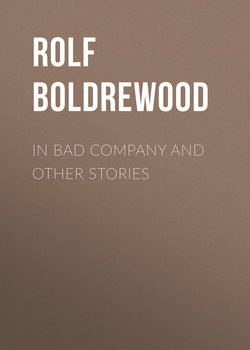Читать книгу In Bad Company and other stories - Rolf Boldrewood, Rolf Boldrewood - Страница 9
IN BAD COMPANY
CHAPTER IX
ОглавлениеThe Court was not very full. The 'fellow-workers' to whom Stoate so often referred had made up their minds about him. Open warfare, rioting, plunder, even arson or bloodshed, in a moderate degree they would have condoned. But to be caught in the act of setting fire to a Run, and detected with a stolen cheque in your pocket – that cheque, too, belonging to a shearer – these were offences of mingled meanness and malignity which no Union Caucus could palliate. 'He's a disgrace to the Order; the Associated Workers disown him. The Judge'll straighten him, and it's hoped he'll give him a good "stretch" while he's about it.'
This was the prejudicial sentence. And having made up their minds that their over-cunning ex-delegate by dishonourable imprudence had played into the hands of the enemy, few of the Unionists took the trouble to attend, for the melancholy pleasure of hearing sentence passed on their late comrade and 'officer.'
So, the evidence being overwhelming, the jury found Mr. Stoate guilty, and the Judge, having drawn attention to the recklessness and revengeful feeling shown by the prisoner – not halting at the probable consequences of a crime against society, by which human life might have been endangered, if not sacrificed – sentenced him to five years' imprisonment with hard labour. He was immediately afterwards arraigned on the charge of 'stealing from the person,' and the sergeant's evidence, as well as that of Hardwick, was shortly taken. Being again found guilty, he was sentenced to two years' imprisonment – which, however, the Judge decreed to be concurrent, trusting that the longer term of incarceration might suffice for reformation. In conclusion, he again congratulated William Hardwick on the recovery of his money and his character, both of which he had so nearly lost through association with men who had banded themselves together to defy the law of the land, and to attempt illegal coercion of workmen who differed from their opinions.
